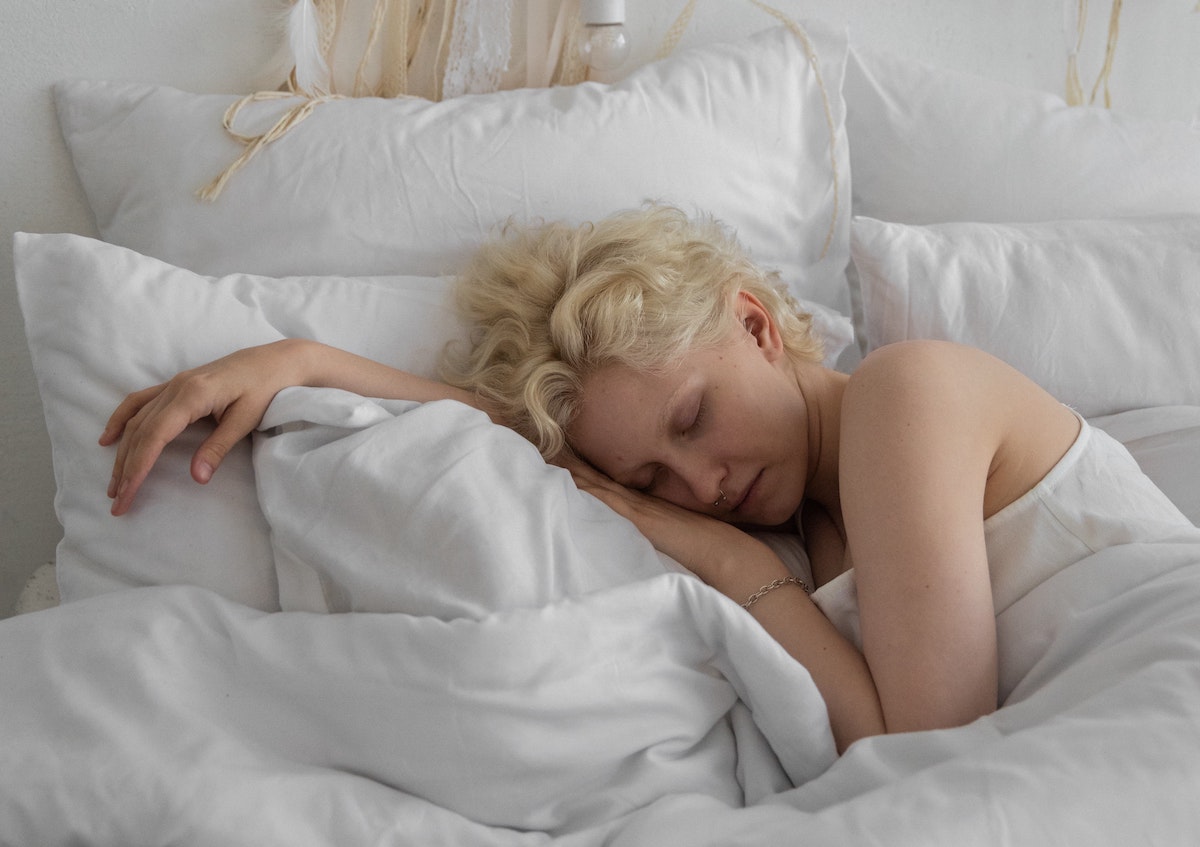Sweet Dreams and Sleep Hygiene: 4 Tips for Better Sleep
Sleep is essential for your physical and mental health, but despite its importance, many people find themselves with a sleep schedule that causes daily fatigue and irritability. In a study administered by The Sleep Foundation, it was revealed that 40% of adults say that feeling sleepy has caused interference with their daily activities, while nearly 25% report this happening sometimes or often. However, 55% of Americans say that their fatigue is due to their quality of sleep, as opposed to the 44% who blame the lack of time.1
Healthy sleep habits, also known as sleep hygiene, are obtainable but don’t feel overwhelmed by trying to alter your nightly routine all at once. Instead, take one step at a time, and as with most things, knowledge is a wonderful place to start.
Sleep Deprivation
For young adults, the recommended sleeping duration is 7 to 9 hours, but for older adults, 8 to 9 hours is suggested.2 Children and teens, though, require more sleep at night. When it comes to sleep deprivation, it’s important to note that quality is just as important as quantity. If you get low-quality sleep at night, then you’ll feel tired the next day regardless of the amount of time you slept.
While feeling drowsy the next day is an obvious sign of sleep deprivation, there are more factors at play. Your health, and even your skin, feel the ill effects of sleep deprivation.
Your Health Suffers
Sleep deprivation has a multitude of effects on health. Missing out on the recommended amount of shut-eye can cause more than just grogginess.
Sleep deprivation affects your:
- Hormone levels: An insufficient quantity of quality sleep can affect hormones, while also releasing stress hormones that are known as norepinephrine and cortisol. This could result in infertility.
- Brain: Sleep deprivation can make it difficult for a person to make new memories. It also affects the prefrontal cortex, which controls reasoning, and the amygdala, which is responsible for emotion.
- Immune System: Sleep deprivation could cause a person to be more susceptible to infections and respiratory diseases.
- Weight: The feelings of hunger and fullness can be negatively impacted by sleep deprivation. It can also cause a release of insulin, resulting in a higher risk of type 2 diabetes.
- Cardiovascular System: Sleep helps the heart vessels heal and rebuild. Additionally, it affects the processes that maintain blood pressure, sugar levels, and inflammation control. Sleep deprivation could increase the risk of cardiovascular diseases.
Beauty Sleep is Real
Getting high-quality sleep recharges your skin and helps to heal, restore, and eliminate toxins. If your sleep is compromised, your body can’t carry out the essential skin functions.
Here are a few ways your skin suffers from sleep deprivation:
- Dull Skin. Missing sleep increases your cortisol levels, which triggers inflammation.
- Collagen Production. Collagen is important for the structure and elasticity of the skin, so when collagen is broken down, it shows more signs of aging.
- Dry Skin. Your PH levels drop when you don’t sleep, causing your skin to not produce the moisture it needs.
4 Tips to Revitalize Your Sleep Hygiene
Sleep hygiene refers to healthy habits that improve your ability to fall asleep and stay asleep. Maintaining good sleep hygiene is vital for your health and quality of life. If you have trouble sleeping well, here are a few steps you can take to build good sleep hygiene:
1. Take Control of Your Sleep Schedule
Try getting in sync with your body’s natural sleep cycle, known as your circadian rhythm. It’s one of the most important strategies for getting better sleep at night. By keeping a regular sleep-wake schedule, you’ll feel more refreshed and energized than if you had slept the same number of hours on a skewed schedule.
Napping is a wonderful way to make up for lost sleep. However, try limiting naps to around 15 to 20 minutes to maintain your circadian rhythm. If you get drowsy before bedtime, attempt a mildly stimulating activity. This could include calling your friend to chat about your day or washing the dishes.
2. Create a Pre-Bedtime Routine
Keeping a consistent bedtime routine allows your body to unwind and recognize that it’s time for bed. A consistent routine, which should begin 30 to 60 minutes before bed, will decrease the time it takes you to fall asleep.
You can craft your routine around anything that makes you feel relaxed. Warm baths are a wonderful addition to your routine due to the drop in your body temperature while you’re cooling down afterward. Focusing on your breathing while listening to soothing music is also a good option.
Before bed, try to avoid screens that emit blue light. Late-night television, for example, suppresses your melatonin, which is a naturally occurring hormone controlled by light exposure that aids in regulating your sleep schedule. If you work a night job that requires the use of bright screens, you can grab blue-blocking glasses to protect yourself.
3. Optimize Your Bedroom for Comfort and Relaxation
Many believe that your bedroom’s environment is a key factor in getting a good night’s sleep. By optimizing your bedroom to meet your comfort and relaxation needs, you’re much more likely to feel rested the next day.
The temperature in your room should stay on the cooler side because it results in your body feeling more tired. Try setting your thermostat between 60°F and 67°F.
According to a study on the sleep environment of women, 50% of participants experienced better sleep at night when noise and light diminished. If your bedroom is impacted by these distractions, try purchasing blackout curtains and earplugs.
4. Be Mindful of Your Habits During the Day
Ensuring high-quality sleep is an all-day affair. By fostering pro-sleep habits during the day, you’ll have fewer factors working against you at bedtime.
Our internal clocks are regulated by light exposure, so try to soak up the sun’s rays when you’re able. By getting a dose of daylight, you’ll also normalize your circadian rhythm. However, if you can’t make use of natural light, ask your doctor about a light therapy box.
Exercise directly correlates with quality sleep as it initiates a change in energy use and body temperature. However, experts do advise against a big workout before bed considering that you’ll be too energized to get adequate sleep. Exercising in the morning, though, promotes alertness and more overall energy throughout the day.3
What you eat and drink during the day matters. Try to avoid caffeinated beverages a few hours before bed, seeing as they provide you with an excess of energy. Also, if you are prone to eating late dinners, your body will have trouble falling asleep due to your body performing digestive processes. Additionally, while many believe alcohol causes drowsiness, the reality is that it lowers your quality of sleep by affecting your brain. Try skipping a nightcap and opt for herbal tea or water.
Still Can’t Sleep?
If you’re still having trouble sleeping, there are a few options that could further strengthen your sleep hygiene, such as:
- A body scan meditation. By focusing your attention on different areas of your body, you can identify where you have pent-up stress or tension. One method consists of lying on your back, legs uncrossed, arms relaxed at your sides, and eyes closed. Focus on your breathing for 2 to 3 minutes, and you’ll begin to feel more relaxed. For more beginner body scan meditations, click here.
- Keeping a sleep journal. A sleep journal is an important tool to understand and evaluate your sleep patterns. Every day, try opening up your journal to jot down your bedtimes/wake-up time, sleep distractions, how long it takes to fall asleep, and your perceived quality of sleep.
- Getting out of bed. Tossing and turning usually result in stress, and when your mind is full of worry, sleep is off the table. Try getting out of bed to attempt a relaxation technique, such as deep breathing or yoga.
- If your sleep hygiene is being severely compromised by various factors or if your sleep problems are worsening, try seeking the advice of a medical professional. It’s especially important to notify your doctor if your sleep issues are persisting over the long term, affecting your health and safety and if they occur alongside other symptoms. By talking with your doctor, you’ll be about to rule out a sleep disorder, such as sleep apnea and insomnia.
Sleep plays a key role in all aspects of your health and wellbeing. By getting an adequate amount of quality rest every night, you’ll be a more vibrant you. Bid adieu to next-day drowsiness, and wave hello to sleep hygiene and good dreams.
Sleep well, beautiful humans.
—
https://www.sleepfoundation.org/wp-content/uploads/2020/03/SIA-2020-Q1-Report.pdf [1]
https://pubmed.ncbi.nlm.nih.gov/29073412/ [1]
https://www.healthline.com/health/exercise-fitness/working-out-in-the-morning#takeaway [3]








